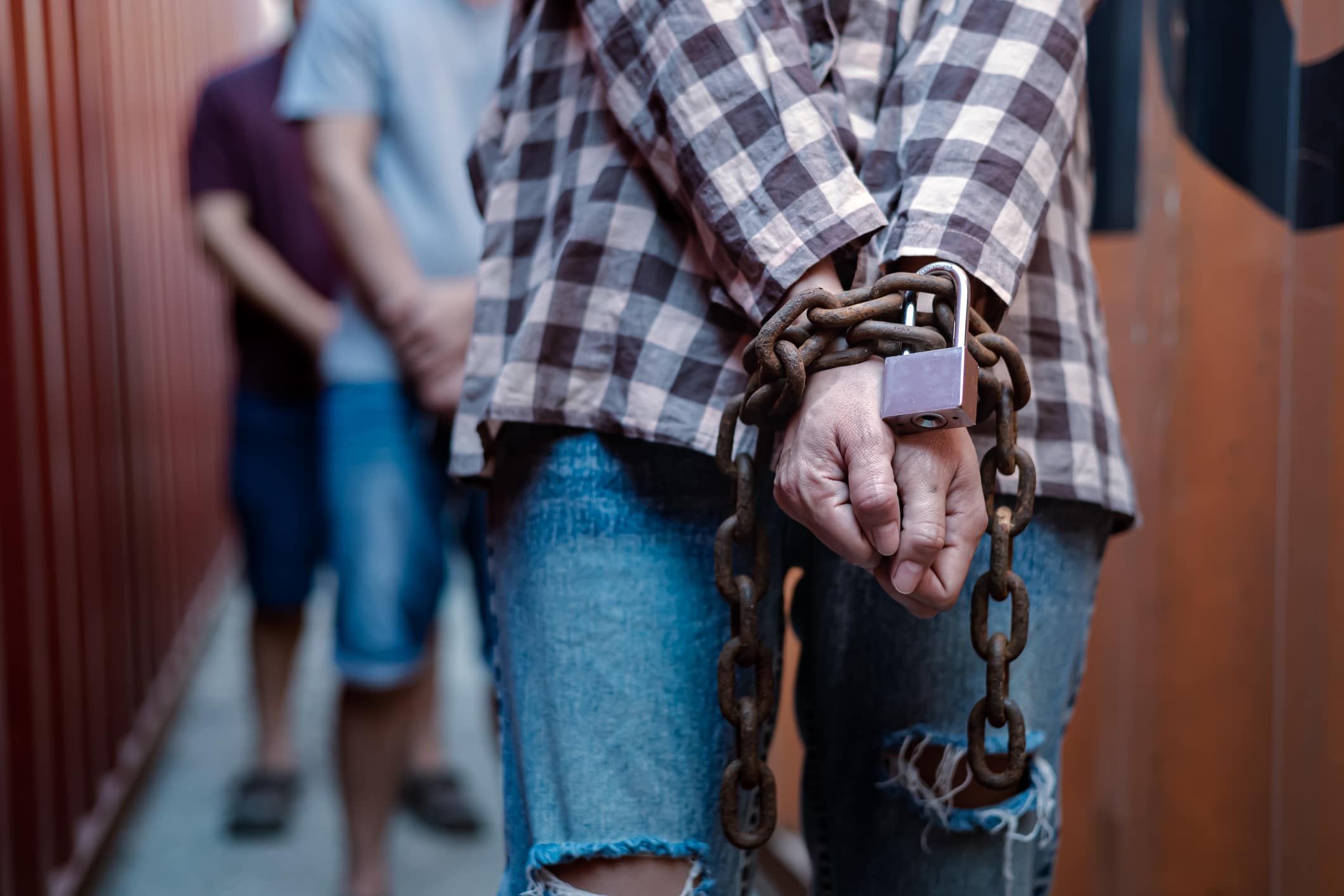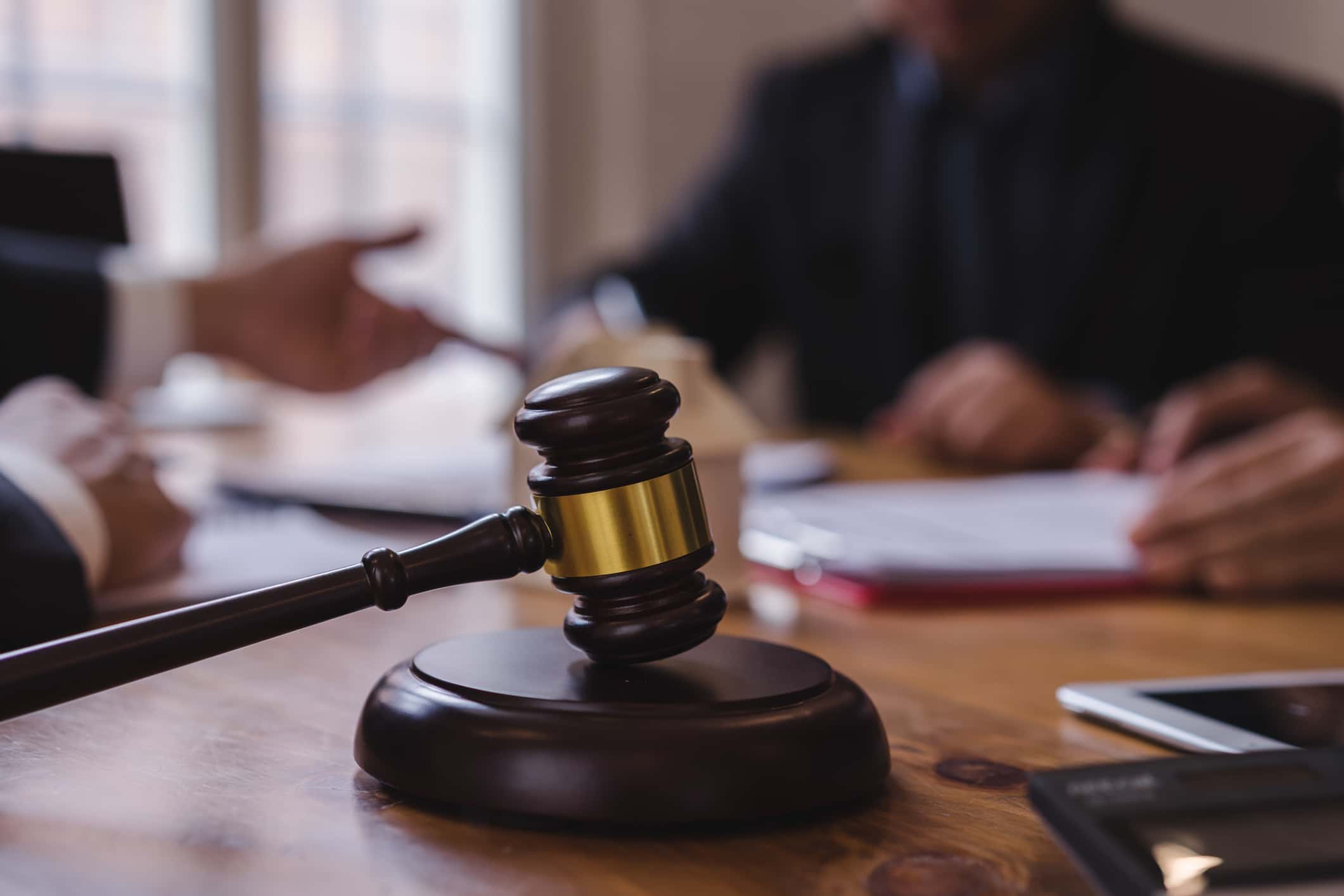As leading criminal defense attorneys in Central Florida, we believe that everyone deserves access to a robust legal defense, regardless of the nature of their charges. Contact Sergio Cruz Criminal Defense to start preparing your rock-solid defense strategy today.
It’s hard to imagine a criminal offense more serious than human trafficking. Simply being charged with a crime of this magnitude can do incalculable damage to your reputation, livelihood, and personal relationships. And the price of conviction for human trafficking is almost unimaginable.
Just remember: Simply being accused of a crime does not make you guilty. Innocent individuals are routinely accused of committing serious criminal offenses — even human trafficking crimes. However, their innocence won’t protect them from conviction or the numerous harsh penalties that come with it, which is why mounting a robust legal defense is absolutely essential.
If you’ve been charged with human trafficking, your future hangs in the balance. The sooner you partner with an experienced human trafficking defense lawyer, the sooner they can start formulating an aggressive legal strategy to clear your name.
The team at Sergio Cruz Criminal Defense is committed to providing the top-tier legal advocacy you need to overcome your charges. This article will explain everything you need to know about human trafficking charges in Florida, legal defenses, penalties for conviction, and more.
The Law in Florida for Human Trafficking
The State of Florida has stringent laws to combat human trafficking, as outlined in Florida Statutes, Section 787.06. According to Florida law, human trafficking involves the exploitation of individuals through force, fraud, or coercion for the purposes of forced labor, involuntary servitude, or commercial sexual activity. It encompasses the recruitment, harboring, transportation, provision, or obtaining of a person for any of these exploitative purposes.

Types of Human Trafficking
Human trafficking takes different forms and can look vastly different depending on the specific details of each case. Florida law recognizes two main forms of human trafficking:
- Labor trafficking: a type of trafficking used to exploit an individual for their labor, typically in a harsh, abusive environment
- Sex trafficking: trafficking an individual for the purpose of a commercial sex act, often through force, fraud, or coercion
Both types of human trafficking rely on exploitation through force, fraud, or coercion. Conviction for either carries severe penalties, especially when minors are involved.
What Are the Penalties for Human Trafficking?
The penalties for human trafficking in Florida vary based on the specifics of the crime, including the age of the victim and the nature of the trafficking activity. Here’s a breakdown of potential penalties:
- Human trafficking of a child under 18 for labor or services. This crime is a first-degree felony, punishable by up to 30 years in prison, a fine of up to $10,000, or both.
- Human trafficking of a child under 18 for commercial sexual activity. This crime is a life felony, punishable by life imprisonment without the possibility of parole and a fine of up to $10,000.
- Human trafficking of an adult for labor or services. This crime is a first-degree felony, punishable by up to 30 years in prison and a fine of up to $10,000.
- Human trafficking of an adult for commercial sexual activity. Also a first-degree felony, this conviction is punishable by up to 30 years in prison and a fine of up to $10,000.
Certain aggravating factors can enhance the severity of the penalties for human trafficking. These include use of a deadly weapon during the commission of the crime, the involvement of minors, and causing serious bodily harm to the victim.
Common Defense Tactics Against Human Trafficking Charges in Florida
Defending against human trafficking charges in Florida requires a deep understanding of Florida’s criminal law and a highly strategic approach. Here are a few of the legal defense arguments we can explore together:
- Lack of knowledge or intent: The defendant lacked knowledge or intent to commit the crime of human trafficking and did not knowingly engage in or facilitate trafficking activities.
- False accusations: The defendant was falsely accused of human trafficking, and accusations are based on a mistaken identity, malicious intent, or misunderstandings.
- Insufficient evidence: The prosecution has not met the burden of proof required to establish all elements of the human trafficking charge beyond a reasonable doubt.
- Consent: The alleged victims (who are adults) consented to the activities in question.
- Duress or coercion: The defendant was acting under duress or coercion and was forced to participate in the trafficking activities against their will due to threats of imminent violence.
- Entrapment: The defendant was coerced or persuaded by law enforcement officers to engage in human trafficking that they would never have otherwise engaged in.
- Mistaken identity: The defendant was mistakenly identified as being involved in human trafficking.
- Violation of constitutional rights: The defendant’s constitutional rights were violated during the investigation or arrest, warranting the suppression of evidence obtained unlawfully.
Each human trafficking case is unique and requires a comprehensive and strategic approach that synthesizes multiple defense tactics. It’s critical to partner with a human trafficking defense lawyer who can identify the most appropriate defenses and advocate effectively on your behalf.
What the Prosecutor Must Show to Prove Human Trafficking in Orlando
To secure a conviction for human trafficking, the prosecutor must prove beyond a reasonable doubt that the defendant engaged in conduct that meets the legal definition of human trafficking as outlined in Florida Statutes, Section 787.06. Most importantly, they will need to demonstrate the following key elements:
- The defendant committed an act of recruitment, transporting, harboring, or obtaining the victim.
- The defendant used force, fraud, or coercion to make the victim engage in labor, services, or commercial sexual activity.
- The defendant’s actions were carried out to exploit their human trafficking victims for labor, services, or commercial sex acts.
These three elements form the structural foundation of the prosecutor’s case. If we can disprove or poke holes in any of them, their accusations against the defendant unravel quickly.

Are There Criminal Offenses Related to Human Trafficking?
Various criminal offenses are closely related to human trafficking, particularly crimes that facilitate human trafficking activities. These related offenses carry their own severe penalties and include the following crimes:
- Kidnapping: confining, abducting, or imprisoning another person against their will, as outlined in Florida Statutes, Section 787.01.
- False imprisonment: unlawfully restraining or detaining another person without legal authority, according to Florida Statutes, Section 787.02.
- Sexual battery: non-consensual sexual activity that is often linked to human trafficking cases involving forced sexual exploitation
- Procuring a person under 18 for prostitution: the crime of procuring, or attempting to procure, a person under the age of 18 for the purpose of prostitution
These are just a handful of the many criminal offenses that often intersect with human trafficking cases. Understanding these related charges is crucial for comprehensively addressing and defending human trafficking cases.
Why Is It Hard to Prosecute Human Traffickers in Florida?
Prosecuting human traffickers in Florida presents significant challenges. Various legal, practical, and systemic issues make securing a conviction difficult, and understanding these aspects can greatly benefit your defense. Here are a few of those reasons:
- Victims of human trafficking are often reluctant to testify.
- Human traffickers use complex methods of coercion to control their victims.
- These cases often lack physical evidence and witness testimonies.
- Human trafficking often occurs in multiple jurisdictions and across state lines, which complicates prosecution.
- Prosecutorial agencies often face resource limitations.
- These cases demand a high burden of proof and have strict statutory limitations.
Working closely with an experienced Orlando human trafficking defense lawyer is beneficial in countless ways, one of which is that they will understand how to leverage certain prosecutorial challenges to benefit your defense strategy. However, not every criminal defense lawyer is equally capable of trying these complex cases.
How a Orlando Human Trafficking Lawyer Can Help You
When you’re facing serious criminal charges such as human trafficking, you can’t settle with just any attorney — you need the best. With years of experience, indisputable expertise, and a wide array of resources, the human trafficking attorneys at Sergio Cruz Criminal Defense have what you need to avoid conviction.
Our legal team will work tirelessly to investigate the circumstances of your case, gather critical evidence, evaluate documentation, interview witnesses, and more to ensure you have the best possible outcome. The sooner you call, the sooner we can start building a rock-solid case for your innocence — so don’t delay! Contact our law firm to speak with a passionate legal representative today.
Contact UsContact us now
In need of a strong defense? Don’t face your charges alone. Get the legal support you need call today or email us. Your defense starts here.
